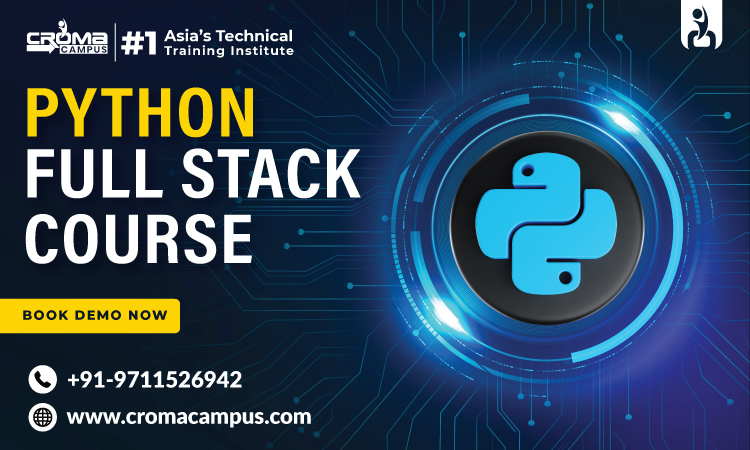In recent times, the IT Sector has expanded a lot, creating opportunities for individuals in various ways. Well, multiple technologies are smoothening the working process of organizations. They are developers who are responsible for developing such applications. Among the multiple developers, if we talk about such one developer who can work on both front-end and back-end is a Python Full-stack developer.
In Full-stack development, Python has played an important role because it is a high-level, general-purpose programming language. This is the reason why it has gained popularity among its users. So if you are also looking to grow your career in this field, you can enroll in the Python Full Stack Developer Course Online. Python is one of the easiest languages to learn and its readability, and extensive ecosystem of libraries and frameworks make it more preferable choice.
What are the Key Skills a Python Full-Stack Developer Should Have?
If you are looking to become a proficient developer, take information about what Python Full Stack Developer Course Syllabus includes. Apart from this, you can learn about the key skills a Python full-stack developer should have in the discussion given below:
- Python Programming Fundamentals:
- Before you enroll in the course, you should have a basic understanding of Python Programming Fundamentals. Here what you should understand is its structure, data types, (integers, floats, strings, lists, tuples, dictionaries, sets), control flow (if-else statements, loops), and functions.
- Also when it comes to object-oriented programming grasp the knowledge of its concepts such as (integers, floats, strings, lists, tuples, dictionaries, sets), control flow (if-else statements, loops), and functions.
- Well, it is also necessary to learn how to handle exceptions and errors.
- Front-End Development:
Well, various languages need to be learned for front-end development including:
- HTML is needed for creating the structure of web pages using HTML tags.
- Well, you need to learn CSS which stands for Cascading Style Sheets, used to style web pages with properties such as colors, fonts, layouts, and responsiveness.
- To add interactivity and dynamic behavior to web pages JavaScript is used.
- Also, you can learn React, Angular, or Vue.js to improve your front-end development skills.
- Back-End Development:
- If you master a popular Python web framework such as Django or Flask, it provides tools and libraries for building web apps efficiently.
- When you have to work with database management to store andd retrieve data it is necessary to understand SQL.
- Also, it is essential to create and consume APIs to interact with other apps and services.
- Well, it is also necessary to understand how to render web pages on the server side for improved SEO and performance.
- Additional Skills:
- You may need version control for which you can use Git to track changes, collaborate with others, and manage project history.
- Also, it is essential to know how to deploy web applications to production stores.
- Apart from this, you should know how to develop strong problem-solving skills to identify and fix issues in your code.
- It is essential to stay updated with the latest trends and technologies in the Python and web development world.
What is Covered in the Full-stack Developer Course Syllabus of Python?
A typical Python Full Stack Developer Course might include the following topics:
- Introduction to Python
- Data Structures and Algorithms
- Object-Oriented Programming
- Web Development Fundamentals (HTML, CSS, JavaScript)
- Python Web Frameworks (Django or Flask)
- Database Management (SQL)
- API Development
- Deployment and DevOps
- Front-End Frameworks (Optional)
- Project-Based Learning
Conclusion:
If you are looking to become a Python full-stack developer it needs a combination of technical skills and practical experience. So if you master Python programming, front-end development, back-end development, and additional skills, you can position yourself for a successful career in web development. Also, you can consider taking a course to improve your learning and gain hands-on experience.


